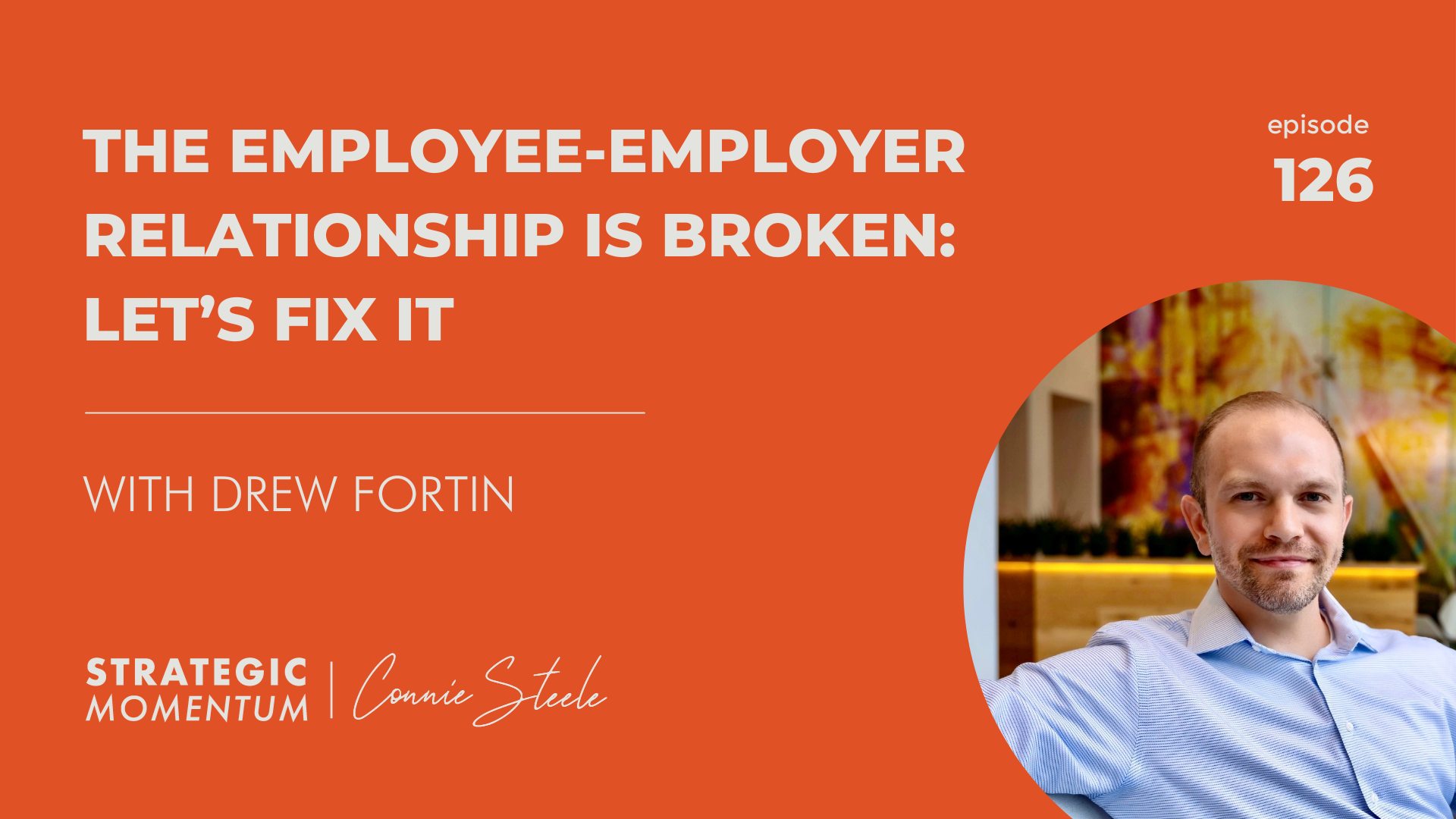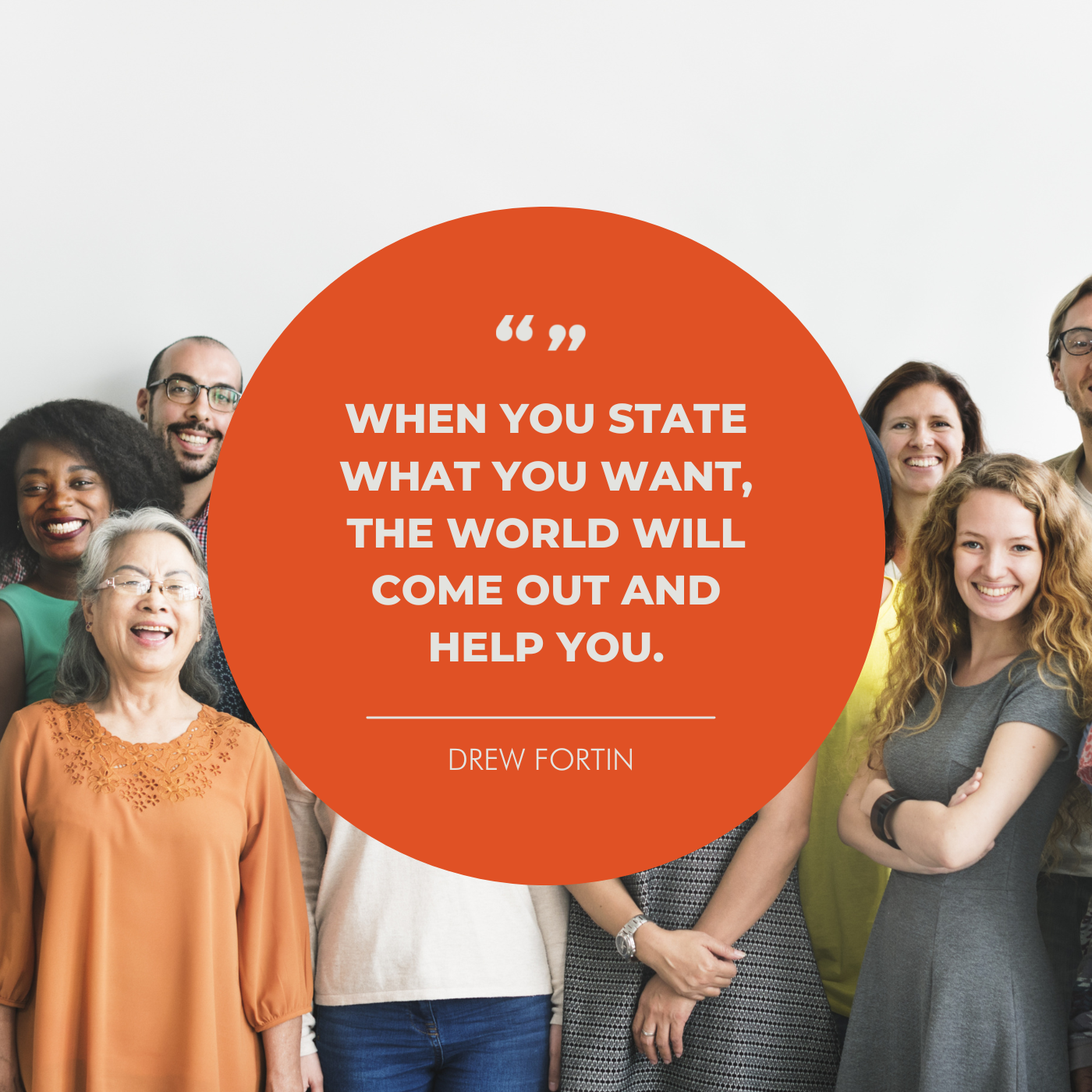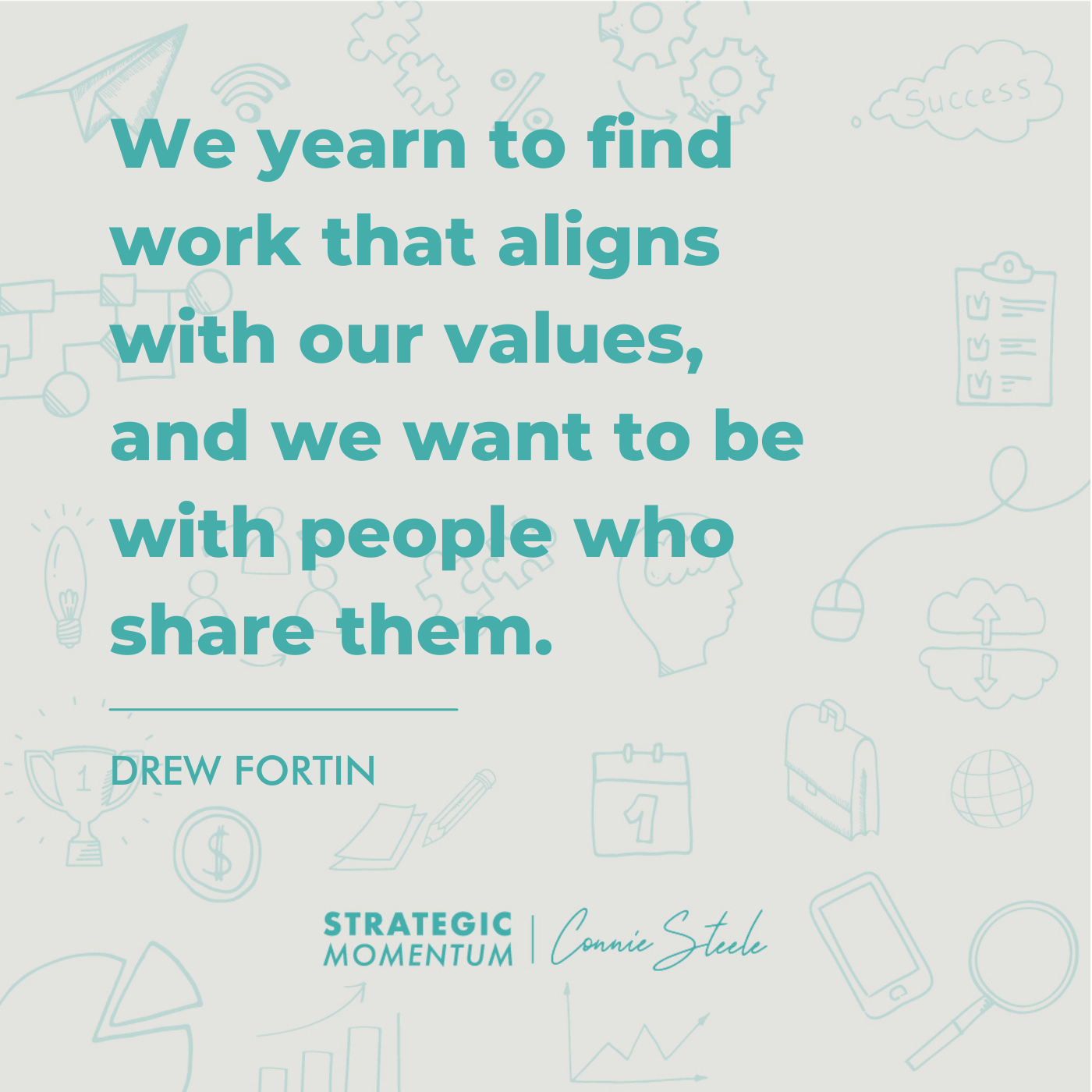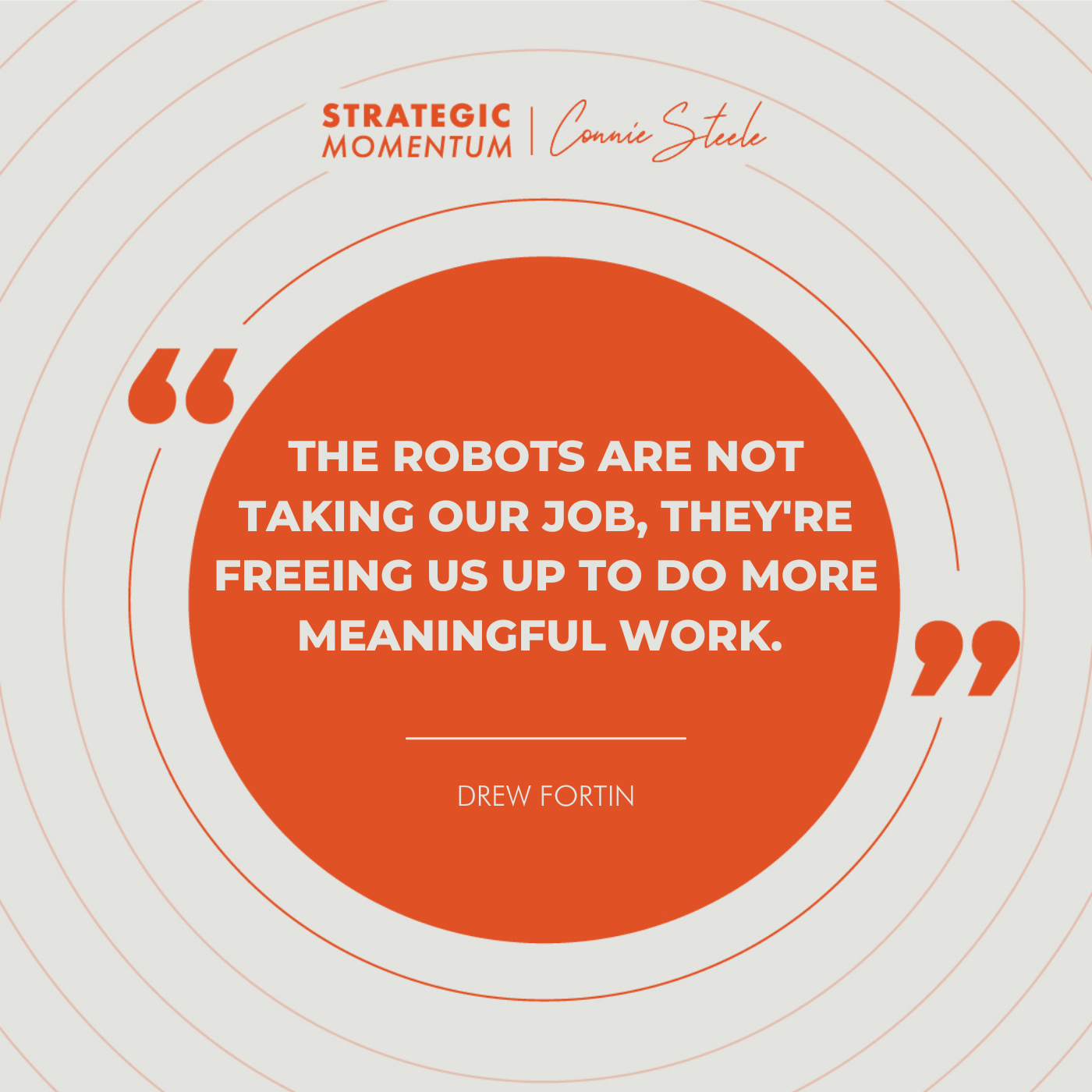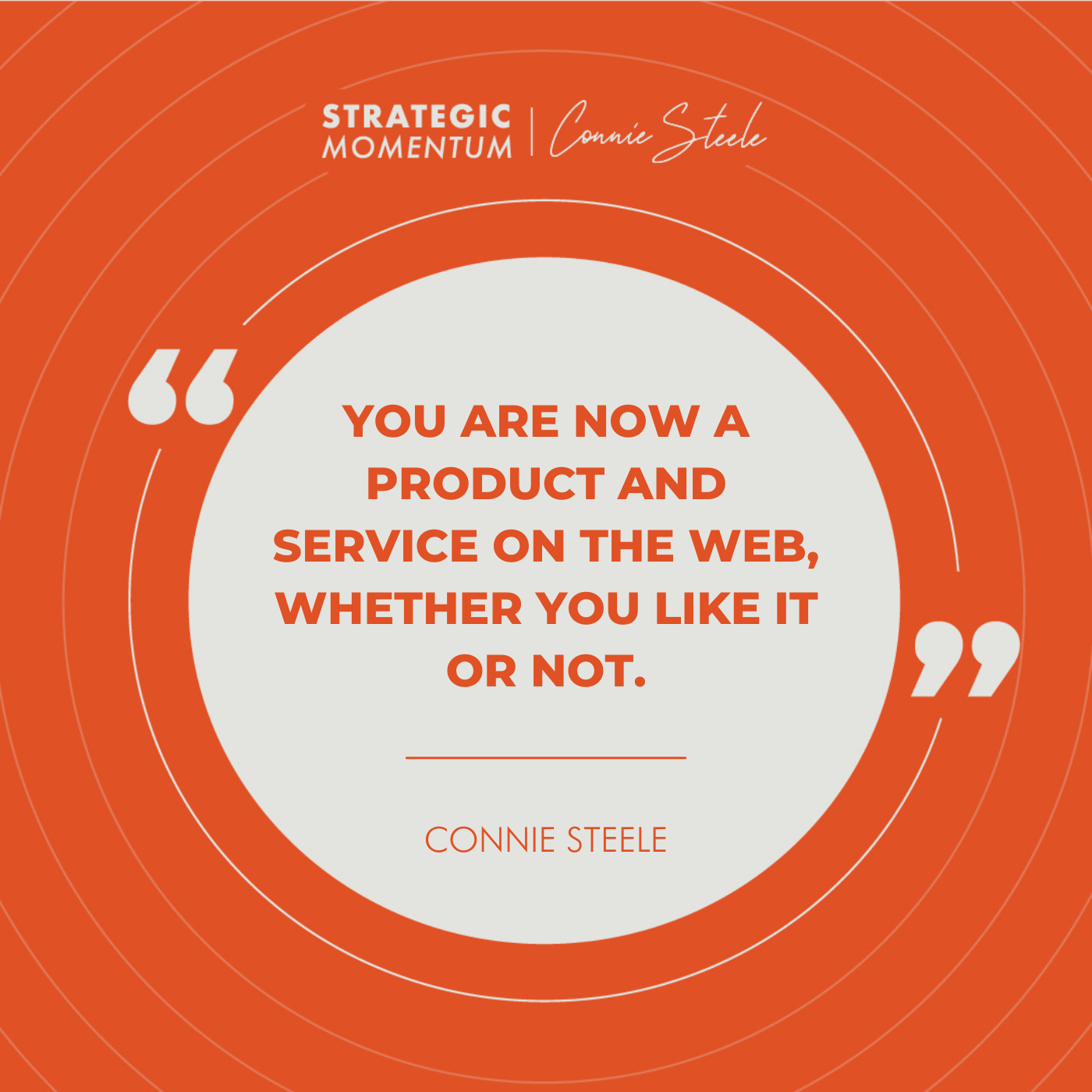Ep. 126 - The Employee-Employer Relationship is Broken: Let’s Fix It - with Drew Fortin
Find Us Wherever You Listen To Podcasts
This season, we’re talking to futurists and future-forward thinkers about what the future of work will look like. We spent the last episode considering how technology might shape our lives and careers 10, 20, 50 plus years down the road. Today, we’re looking at the skills that will be necessary to navigate and lead in the future that’s just over the horizon, if not the present.
Drew Fortin thinks the employee-employer relationship is fundamentally broken. But he also thinks, for the first time in a long time, there’s an opportunity for us to change that and shift the power dynamic between people and the organizations they work within.
We talk about what that looks like for leaders, as well as what skills it takes for an individual to navigate an uncertain and winding career.
The Career of Misfit Toys
Drew likes to describe his resume as like “being from the island of misfit toys.”
He went to music school, played in a rock band, and was pitching to music labels before finding himself on a path to a professional career in marketing. He worked in retail ecommerce spearheading major digital marketing initiatives, worked at a marketing technology company, and helped a classified magazine institution transform their business.
Drew went broad and deep to identify what he liked, what his strengths were in areas he didn’t even know about, and where there was this intersection of his interests and passions. And as he moved up the management ranks, he learned it wasn’t just the data and analytics side of business that appealed to him; he also loved the people and culture part of an organization.
And even in those experiences working in companies where there ultimately wasn’t a cultural fit, he still gained valuable insight. It forced him to take a step back and check in with himself on what he enjoyed doing, what his values were.
Creating a Career Mashup
This exposure to various companies and situations helped Drew realize that he wanted to lead teams, run a business, and ultimately be at the helm as a CEO. But he knew there was still more to learn to achieve that next milestone, so he felt an apprenticeship would be the next logical step.
“I was with people that I was, I say dating up people I admire. I wanted to hang out with those who I feel have accomplished much more than me, who are better than me in many ways.”
This led him to joining a company called PI Worldwide, a behavior assessment company that allows you to learn about yourself and others. As he progressed upward, that eventually then set him up for the role he’s in now as founder and CEO of Lever Talent, a talent strategy agency.
His experience across all different levels helped him realize there are many different types of leaders, and you can't be a great leader in every situation.
The Future is About Meaningful Work
Drew shares that the employer employee relationship is broken, but many point to technology being the catalyst for breaking it.
Since the Industrial Revolution, we’ve created certain kinds of workplaces... processes are often designed to reduce people to cogs in a machine, easily replaceable for the sake of productivity. But now that various advances in technology have enabled each person to do more than they ever could before, we’re relying on humans to leverage their unique human abilities: their ability to make decisions based off of disparate data sets, building interpersonal relationships, doing the subjective things that machines will never be able to truly do.
And that’s why Drew thinks the robots are not going to take our jobs. They can free us up to do more meaningful work — technology could allow us to actually be more human.
Drew believes that people will realize the future of work is about two individuals exchanging value, realizing that together they're much bigger than they are apart, but unfortunately that has been lost in companies and business today.
This evolution of technology will force people to ask themselves, “What do I want and what am I good at?” Then shaping our careers will be a matter of aligning ourselves with the people who have a need, see our value, and are able to directly or indirectly tie those opportunities to what we are seeking now or in the future.
Skills for the Future of Work
I really love Drew’s story because he doesn’t sugarcoat the winding turns, the times he felt lost, the times he just didn’t quite fit. But it was going through all of this — learning about what he really wants and likes to do, learning how to navigate uncertainty — that ultimately helped him find the right path.
Drew figured out that he could create just about any life he wanted if he focused on his own personal development. And now he’s endeavoring to help others cultivate these soft skills as well — the skills that Drew believes set him up to succeed in the future of work.
And I don’t have any doubt we can make the future of work Drew dreams of into a reality, but like we talked about in the last episode, we have to be intentional about it. Because, right now, there are organizations that want to replace their workers with AI-powered solutions; things won’t improve if we don’t fix the broken employee-employer relationship first.
So, if we want to ensure everyone has a chance to thrive in the future, we need to be human-centered leaders. We are in the business of people and we need to learn how to best support them. I love Drew’s vision for Lever Talent representing individuals to help them gain more leverage when they’re looking for the next step in their career.
The new advances in technology looming on the horizon can enrich our lives — but we’re going to need to work together and develop some new skills to make that happen.
Definition of success and how it’s evolved
“Do I feel rich in life, and am I happy and am I grateful? I want to be rich in happiness and family and I think you can get that in a working career too.”
Best Career Advice
“Control everything that's in your control so when that moment comes you have the best chances of success of catching that.”
Key Takeaways:
Go into every stage of your career as a learner.
If machines and technology are going to be supporting the business from a transactional side, then the relational part will still need to be fulfilled. People will need to develop their ability to foster, maintain, and strengthen relationships in pretty much every role and industry.
We as humans have a desire to be with others who align with our values personally and professionally. But to really do that, you first have to understand yourself. That’s why investing in your personal development pays off at every stage of a career; you can’t align based on your values if you aren’t crystal clear what they are.
The most important skills that we need to cultivate for the future of work are communication, persuasion, emotional intelligence, and self-awareness.
Drew also believes there will be a premium put on vulnerability, giving and receiving feedback. These skills are necessary to build a level of trust among your workforce.
The more that we can trust in our people, the better an organization will be at increasing the velocity and quality of decision making, which is going to increase growth, which in turn increases engagement among the employees because who are grounded in a common purpose.
From Drew perspective: “It's just business evolving even more and becoming more human”
Resources
Learn more about Leverage Talent: https://levertalent.com/

